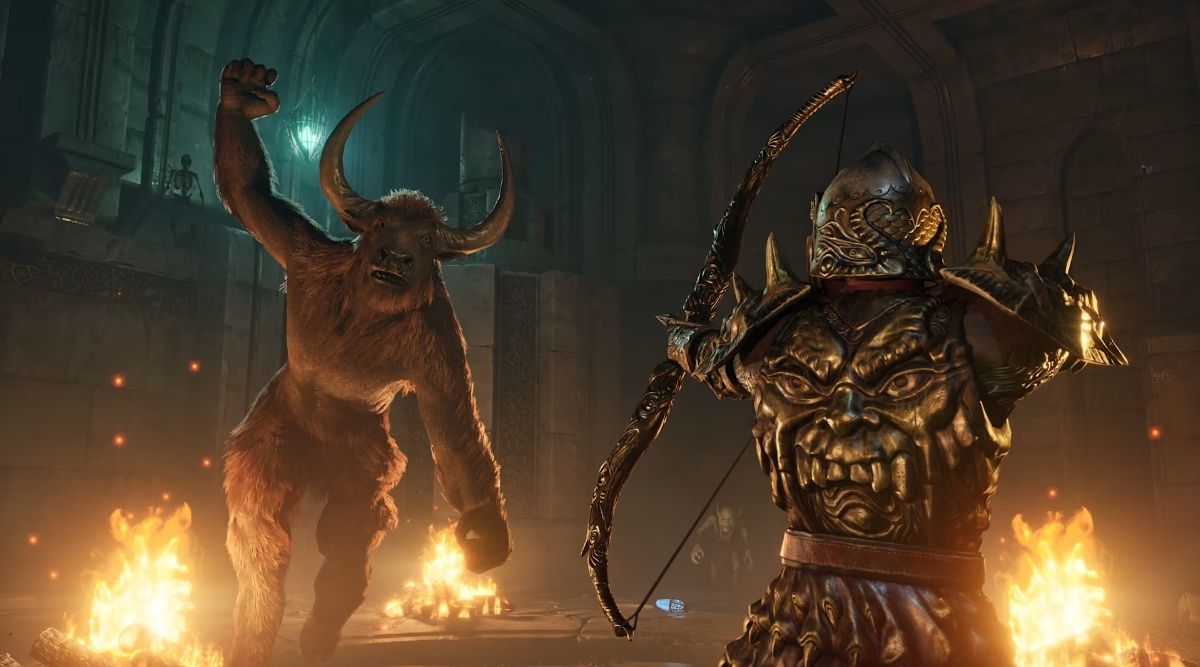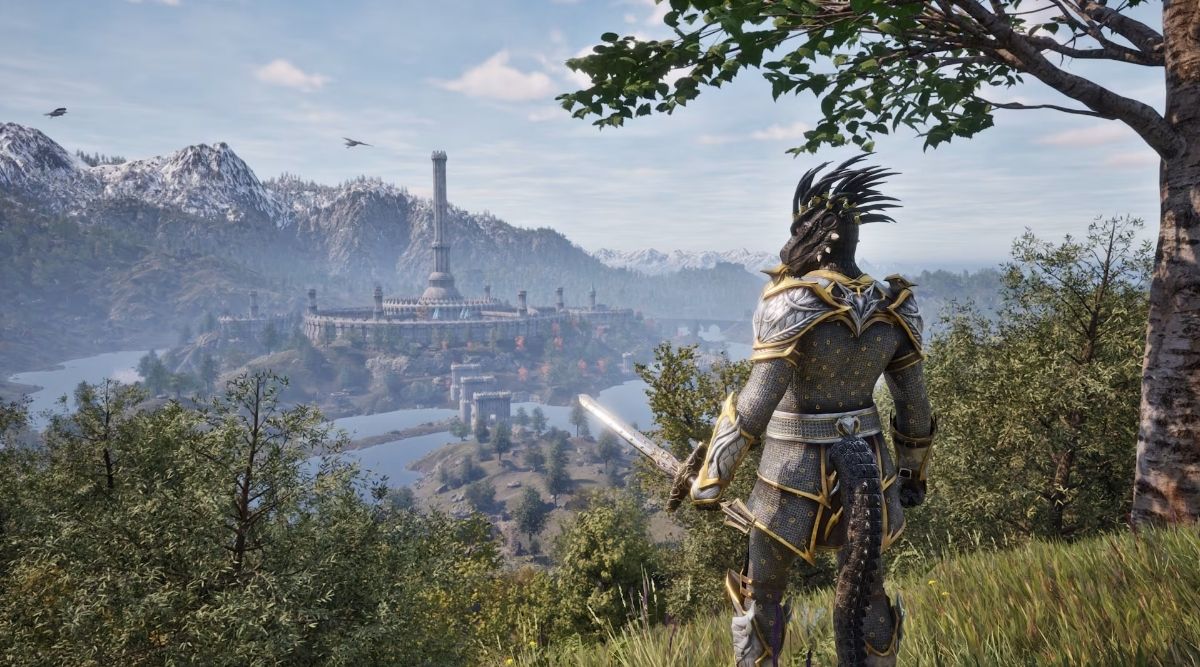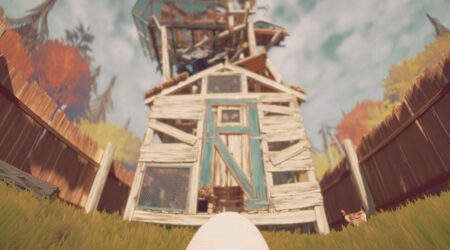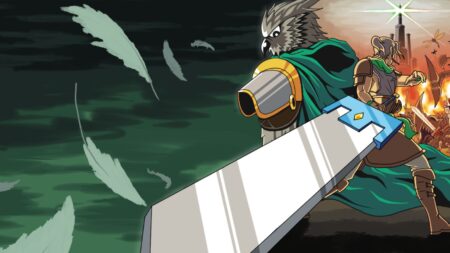It is important to say right out of the gate that I am a massive fan of The Elder Scrolls 4: Oblivion. When I was growing up, it was the first game I got for my Xbox 360 and sparked a lifelong love for RPGs. It is a love that has stayed with me to this day, so I am the prime target audience for Bethesda’s shadow drop of The Elder Scrolls 4: Oblivion Remaster. I was as cautious as I was excited, considering my dislike for most of Bethesda’s post-Oblivion output, but I’m delighted to say that I am in love with Oblivion Remaster.
On the surface, Oblivion Remaster looks like a standard comprehensive graphical overhaul. The visual changes look downright gorgeous and are comprehensive. Every asset is updated, and textures are loaded with details. The new lighting brings depth and verisimilitude to every location throughout Cyrodiil. Animations have been changed to feel more weighty and realistic. The wilds of the open world are filled with more details and flora, making exploration of the open world as beautiful as it is satisfying.
Despite the visual upgrades, Oblivion Remaster still feels very much like Oblivion, which is fantastic for devoted fans like myself. The graphics are beautiful, but NPC faces are still weird in a way that only Oblivion faces are, including some wild animations. Just talk to Agronak gro-Malog in the Imperial City Arena to see how comfortably weird the facial animations still are.
The polished yet still weird animations are emblematic of Oblivion Remaster’s general ethos toward the original: spruce it up while maintaining its spirit. This ethos can be seen throughout the remaster. Changes have been made, like new animations to give attacks more weight and the introduction of sprinting, but touchstones of the original’s spirit are scattered throughout the world of Oblivion Remaster. Even the previously accidentally left in line of dialogue, where the voice actress for the Speech trainer Tandilwe asks for a second take on a line, remains. And it comes with new lip syncing, too.
Oblivion Remaster fixes the original’s level scaling issue.

The most significant systemic modification introduced by Oblivion Remaster is its changes to leveling. It is no understatement to say that leveling in the original Oblivion was surprisingly bad. On the surface, it seemed fine. At character creation, players select major and minor skills that are leveled up incrementally every time players perform the actions associated with them. Hitting an enemy with a bladed weapon like a sword slowly levels up their character’s Blades skill, for example.
Once players level up their major skills enough times, they increase their character level. Increasing this level allows the player to spend points to increase their basic attributes like Strength and Luck. It also increases the level of enemies and quality of loot throughout the world, allowing the world to evolve and level up along with them, regardless of what order they engage with content. The problem with the system is that if the player levels non-combat major skills too frequently, they will find themselves under-performing against harder enemies that outscale their lacking combat abilities.
This issue is addressed in Oblivion Remaster by making leveling major or minor skills both increase the character’s level. The difference between the two classifications is that a character’s major skills increase faster and increase the character’s level faster. It is a simple change that maintains the spirit of the original, while helping protect unfamiliar players from sabotaging their playthrough with too many non-combat major skills.
Fans will feel right at home in Oblivion Remaster.

What is most impressive about Oblivion Remaster is how well it captures the spirit and feel of the original Oblivion despite its use of Unreal Engine 5. The original title was developed on Gamebryo, with Bethesda’s titles starting with Skyrim being developed with its in-house cousin, the Creation Engine. These engines give Bethesda’s games a very particular feel and tone. The glass-eyed looks of NPCs, the stiff walking animations, the great mod support, and the complete lack of usable ladders until Starfield all contribute to the feel of a Bethesda open-world RPG.
Oblivion Remaster manages to capture that familiar feeling despite jumping to Unreal Engine 5 in a masterful example of understanding what parts of an old game are important to maintain when updating it for modern times. It manages to freshen up Oblivion for new players and fans of Skyrim while also keeping the title’s originality that made it such a classic intact. It makes now the absolute best time to pick up the old iron sword and start an adventure across the wonderful wilds of Cyrodiil and the devilish lava fields of the daedric realm Oblivion.
The Elder Scrolls IV: Oblivion Remaster is available now on PC, PlayStation 5, and Xbox Series X|S via Xbox Game Pass.
The Elder Scrolls IV: Oblivion Remaster
-
Rating - 9/109/10
TL;DR
Now is the absolute best time to pick up the old iron sword and start an adventure across the wonderful wilds of Cyrodiil and the devilish lava fields of the daedric realm Oblivion.







